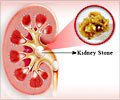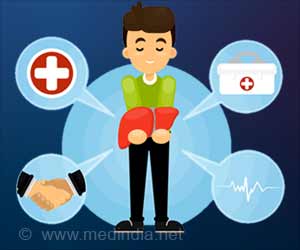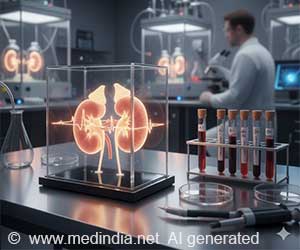A study claims that the majority of individuals in the United States are not eligible to donate a kidney.

The investigators found that 55% of the population would not meet criteria to donate, mostly because of preventable health conditions (19% hypertension, 15% obesity, 11.6% excessive alcohol intake, 12% diabetes). Sixty percent of individuals with an adjusted income of $35,000 per year could not donate due to medical conditions vs. 49% of individuals making >$100,000 per year. If one includes non-US citizenship as criteria for not being able to donate, 68.5% of the US population would not be able to donate.
"The majority of individuals in the US cannot donate, and this is due to preventable health problems in many cases," said Dr. Bleyer. "Lower-income people need transplants more commonly, but individuals from these economic strata are less likely to donate because of more health problems, finances, and immigration status." Dr. Bleyer, a nephrologist and epidemiologist, worked with his son, Anthony Bleyer, Jr., an economics major at Wake Forest University, to develop and carry out the study.
Changes that could directly impact people’’s ability to donate include: providing compensation for lost work for individuals with lower incomes; addressing immigration issues; and improving the health of the population.
Study: "A Population-Based Study of the U.S. Population Shows the Majority of Persons Cannot Donate due to Preventable Diseases and Socio-Economic Conditions" (Abstract FR-OR089)
Disclosure information is available at www.asn-online.org/education/kidneyweek/2014/program-faculty.aspx.
ASN Kidney Week 2014, the largest nephrology meeting of its kind, will provide a forum for more than 13,000 professionals to discuss the latest findings in renal research and engage in educational sessions related to advances in the care of patients with kidney and related disorders. Kidney Week 2014 will take place November 11-16, 2014, in Philadelphia, PA.
The content of this article does not reflect the views or opinions of The American Society of Nephrology (ASN). Responsibility for the information and views expressed therein lies entirely with the author(s). ASN does not offer medical advice. All content in ASN publications is for informational purposes only, and is not intended to cover all possible uses, directions, precautions, drug interactions, or adverse effects. This content should not be used during a medical emergency or for the diagnosis or treatment of any medical condition. Please consult your doctor or other qualified health care provider if you have any questions about a medical condition, or before taking any drug, changing your diet or commencing or discontinuing any course of treatment. Do not ignore or delay obtaining professional medical advice because of information accessed through ASN. Call 911 or your doctor for all medical emergencies.
 MEDINDIA
MEDINDIA




 Email
Email










